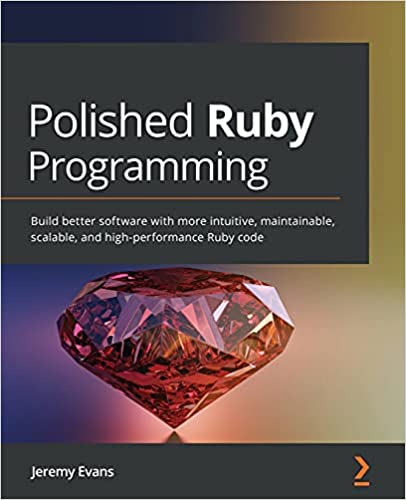The most successful apps become more difficult to maintain over time as the codebase increases in size. Often, the source code reaches a point where a rewrite is required because the application can no longer be effectively maintained. Ruby allows you to enjoy programming by making it as simple as possible to build maintainable and scalable apps. Polished Ruby Programming provides you with recommendations and advice for designing Ruby programs that are easy to maintain in the long-term.
This book takes you through implementation approaches for many common programming situations, the trade-offs inherent in each approach, and why you may choose to use different approaches in different situations. You will start by learning fundamental Ruby programming principles, such as correctly using core classes, class and method design, variable usage, error handling, and code formatting. Later chapters cover higher-level programming principles, such as library design, use of metaprogramming and domain-specific languages, and refactoring. Finally, you will learn principles specific to web app development, such as how to choose a database and web framework, and how to use advanced security features.
By the end of this Ruby programming book, you’ll have gained the skills you need to design robust, high-performance, scalable, and maintainable Ruby apps.

